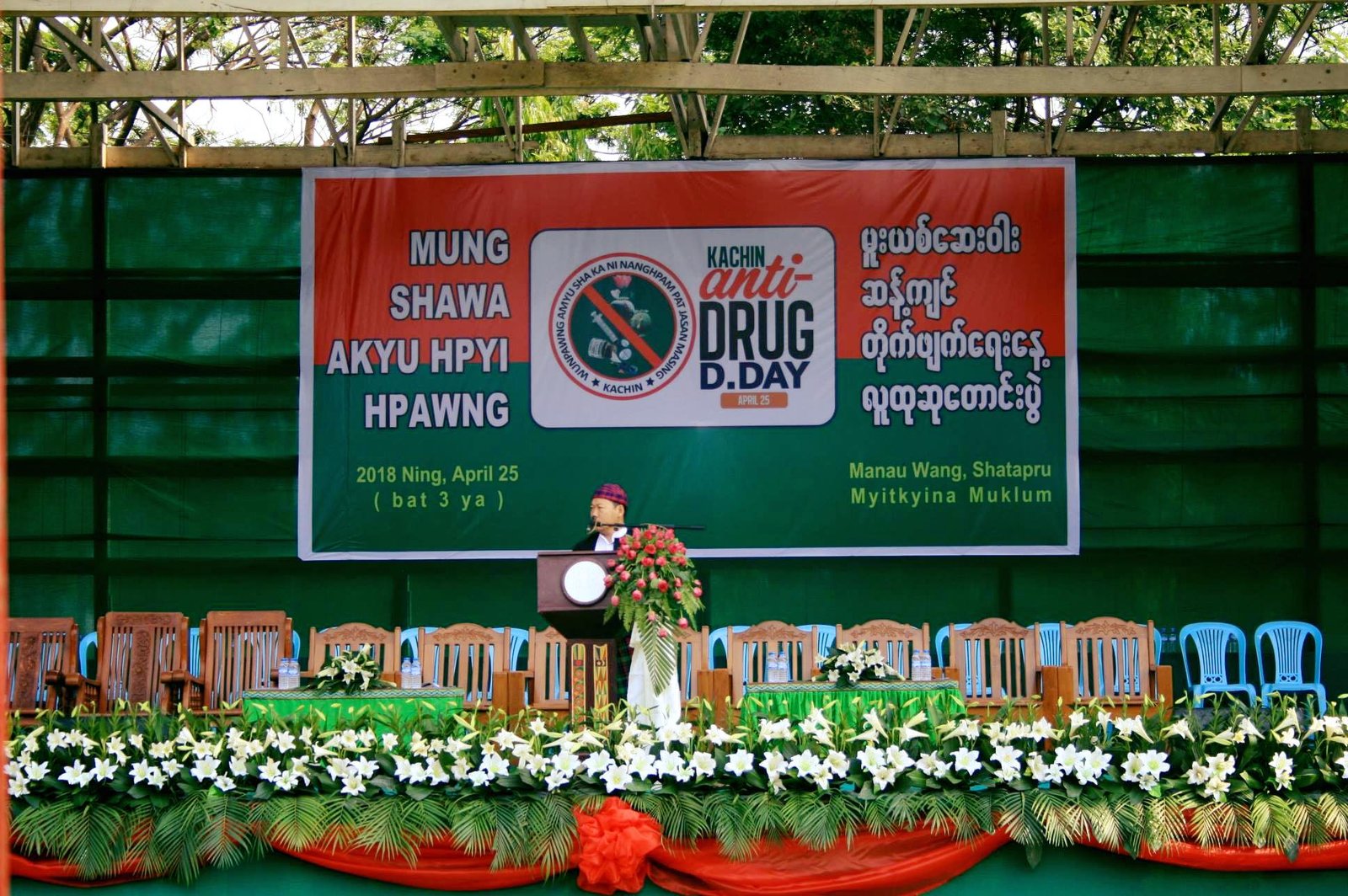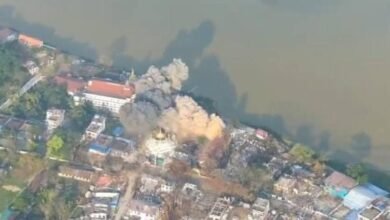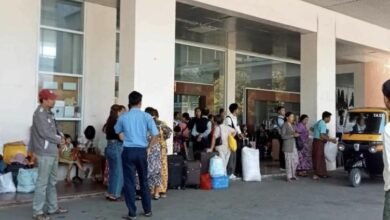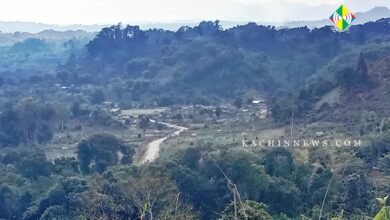KNO: UNODC Should Support Kachin Community’s Anti-Drug Efforts

The UN agency’s recent findings suggested that they ‘hadn’t worked together with local people,’ the KNO secretary says.
The Kachin National Organization (KNO) has urged the United Nations Office on Drugs and Crime (UNODC) to participate in anti-narcotics effort led by local Kachin people.
The KIO’s drug report stated that there are nearly 10,000 hectares of opium poppies in the region—around twice as much as what the UNODC found. The KIO also said that most of the land on which opium is being cultivated is controlled by the Burma Army, it’s Border Guard Force (BGF) or state-backed People’s Militia Forces (PMFs).
London-based KNO secretary Layang Hkun Htoi told KNG that gaps in the UNODC’s findings suggest that they “hadn’t worked together with local people” and relied solely on photos of the areas in question.
“According to the UNODC report, they used satellite images of opium poppy plantations in the Tanai area, but they didn’t know who planted these poppies. Local people can tell you who planted these poppies,” he said, adding, “that’s why the KIO’s report is more accurate.”
He went on to say that the UNODC’s report, which suggested that opium cultivation had increased in areas under KIO control, was “hiding opium poppy cultivation and narcotics production in areas controlled by the BGF or PMFs.”
“We want to urge the UNODC to work together with the KIO and local people,” Layang Hkun Htoi told KNG.
The KNO also demanded that the UNODC and other international organizations and agencies help the Kachin anti-drug movement’s effort toward rehabilitation and addiction awareness, including activities carried out by Pat Jasan, a large organization formed by Kachin churches and members of the public in 2014. They are known for destroying opium fields, and hosting strict and widely attended drug rehab camps.
The KIO and KNO signed a Memorandum of Understanding in January 2011 to work together in military and political affairs “for the freedom of all Kachin people.”




